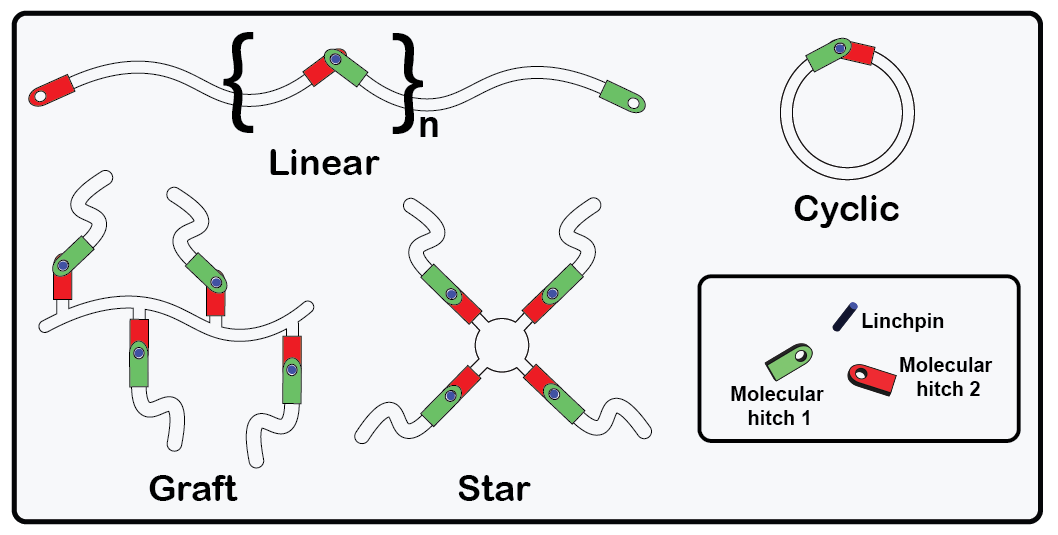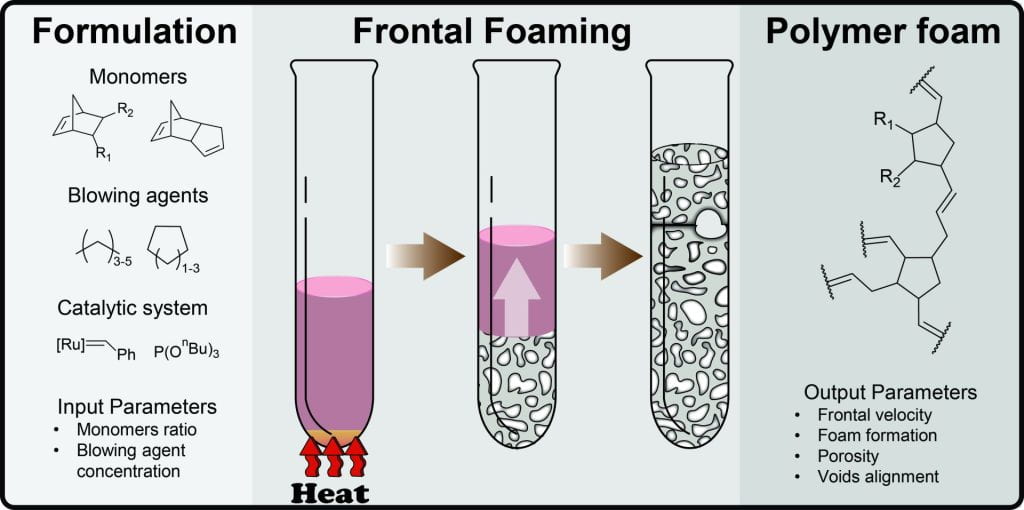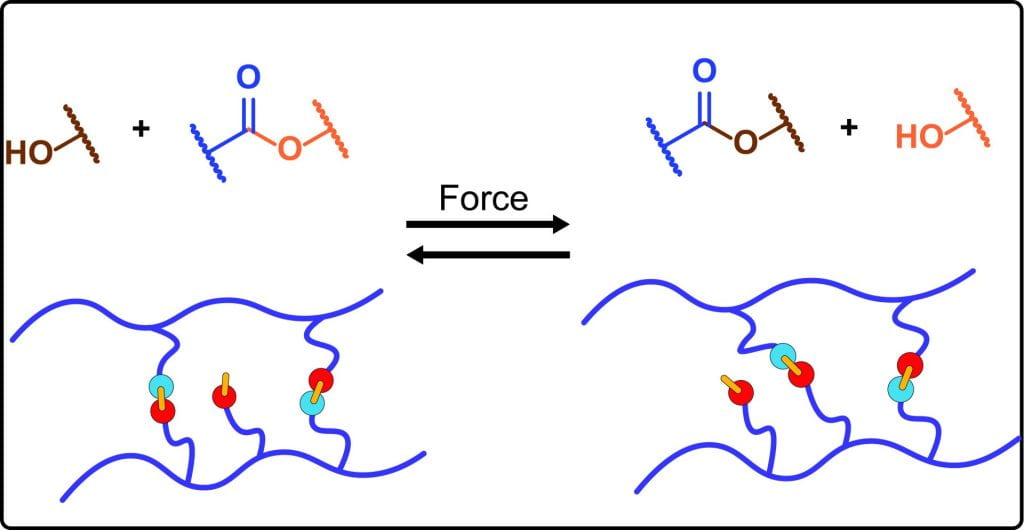Strategies to Access Renewable Polymer Materials for a Circular Future
Extractive linear economy is unsustainable and needs a fundamental change. Transitioning to a circular economy will guarantee a positive future for the upcoming generations, and to this end, our research platform focuses on the development of new synthetic methodologies for recyclable polymers.
Circular Economy Model Based on Polymer Ligation
Polymer ligation via click chemistry is a well-established field for the construction of polymer architectures. The reversibility of such systems, however, is relatively under explored. Our group seeks to introduce reversible functionalities, such as those based on imine boronic esters, into polymer building blocks using a link and pin strategy. This approach allows the construction of diverse polymer architectures that can be deconstructed by removing the linchpin in the polymer backbone.

Frontal Foaming via Frontal Ring Opening Metathesis Polymerization
Energy efficiency is a paramount concern in the plastic manufacturing process, impacting every stage from material extraction to product disposal. As we strive for a more sustainable future, novel approaches with reduced energy footprints are imperative. Our group is continuously exploring the application of frontal polymerization, an innovative technique characterized by low energy consumption and self-sustained polymerization, in synthesizing diverse cellular structures.

Recycling of Thermosets Using Mechanical Force as Stimulus
Thermosets recycling present a unique challenge due to their permanent crosslinked structure, rendering them inherently difficult to recover. Researchers have proposed using reversible covalent bonds to recycle thermosets. Progress has been made in developing new functionalities, improving the thermomechanical properties, and using diverse stimuli. Nonetheless, considerable effort is still required to be able to replace classic thermosets. Our group is actively working in the use of mechanical forces for activating dynamic bonds in solid state, providing a new avenue to reprocess thermosets containing mechanoactive groups.
